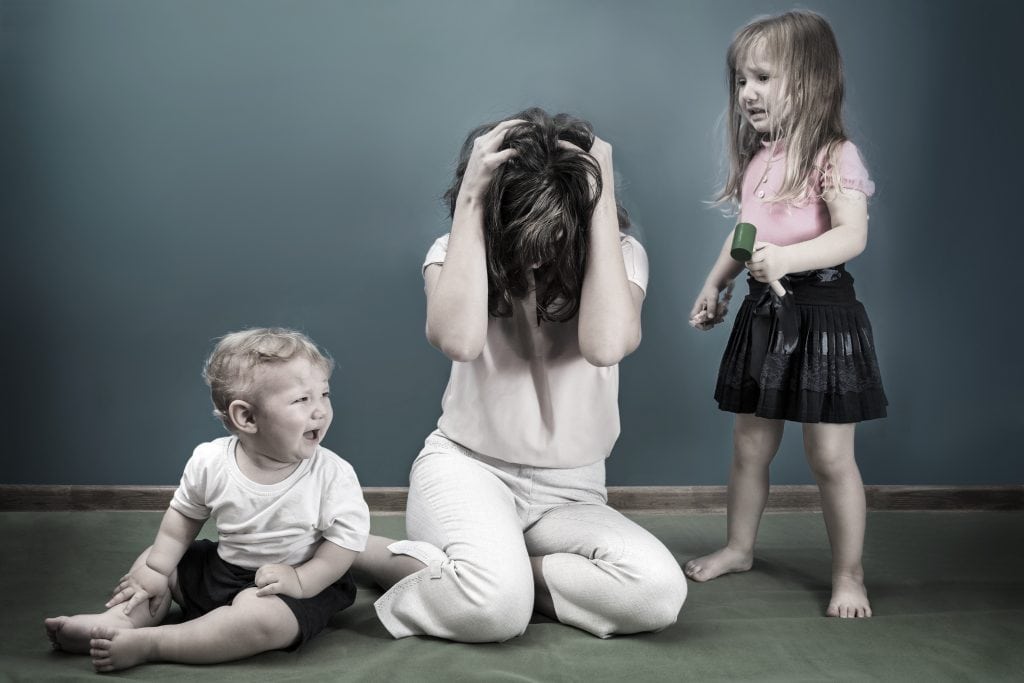Before you throw the first stone at me by saying “I didn’t choose to be a single mom”, please understand that there are women who make this choice consciously.
And it’s all to their credit!
These women are strong, know what they want and are ready to take on the role of solo parent.
They’re independent and don’t need a man to complete them!
Let’s imagine the following scenario…
You’ve been dating your partner for several years.
But there’s a catch!
He absolutely doesn’t want children!
Or rather, not with you.
So you’re faced with a tough decision: stay with him and give up your dream of becoming a mother, or go it alone?

It’s not an easy decision to make.
There are more and more single women in their thirties who want to fulfill their desire to have children, but don’t have a suitable partner by their side.
The fact is, as women’s biology evolves towards menopause, it’s no easier to find the “right” partner, one who also wants to have a child.
Because of this narrow biological window of opportunity, many more women than men want to have children.
After all, they can still make healthy babies in their mid-forties.
Even if you don’t have a pocket calculator, you know this doesn’t work mathematically.
And then the question arises:
Is the single-parent model right for me?
You’ve already gained a lot if you know your motivations:
- Why do you want to be a mom without a partner?
- Do you know yourself well enough to know that this isn’t just a phase?
- Are you financially stable and have you already realized what’s important to you professionally?
- Can you give a child what they need most?
It’s important to answer these questions before deciding to become a solo mom.
Besides, there are other extremely important questions that you need to answer sincerely and personally.
1. Do you have the right reasons for becoming a single mother?

Is it really your own personal desire to have a child?
Or is it perhaps external pressure that’s pushing you in this direction?
As a future single mother, it’s doubly important that you feel stable and that you don’t act rashly.
Don’t let your desire to have children block your vision of the fact that you really want something else.
Do you have enough emotional resources for both of you?
If you find yourself in the following situations, you’re not ready to be a single mother:
- You need someone to love you unconditionally.
- Your parents finally want to be grandparents
- You feel out of place because all your friends already have children.
- In fact, you’re still looking for meaning in your life.
- You feel inadequate as a childless woman and don’t want people talking about you
- You want to leave a legacy
When you’re fully responsible for your little one, there should be no doubt that it’s YOU who really wants a child.
And that you can take good care of him, emotionally, temporally and financially.
2. Do you have realistic expectations of your role as a future single mother?

One thing’s clear: there’s no point thinking about every eventuality that could happen.
But you shouldn’t idealize the role of mother.
Because a baby isn’t always cute.
Sometimes you won’t be able to stand his cries, and you’ll feel helpless, lonely and sad.
If you, as a single mother by choice, want to have enough time for your child and yourself, which I think is really important, try not to set your standards too high.
Otherwise, you’ll have a guilty conscience.
The key word is resource conservation, because as a single mother, you can’t afford to be overwhelmed.
After all, there’s no one to pick up the slack.
3. Are you financially stable?

Where is your personal comfort zone when it comes to money?
After your fertility treatments, sperm purchases, insemination or IVF, do you have enough left over to support yourself and your future baby?
Without having to compromise on things that are important to your personal quality of life?
A child costs money: can you afford to have a child as a single mother?
If you have any doubts about whether you can financially afford to have a child, ask yourself whether there are currently any expenses that aren’t absolutely necessary.
There’s no magic sum of money that guarantees you’ll be safe as a single mother forever.
Logical, because you can’t plan and anticipate every cost.
4. Which people support you in your choice?

The networks created by single women have two main functions.
On the one hand, they serve to provide practical support for the mother in everyday life, and on the other, they are a variety of different caregivers for the child.
Building a reliable social network is essential for single mothers, because without the help of family or friends, you can quickly reach your emotional and physical limits.
So it’s best to think early on about who could and would help you.
At best, these networks are mutual, so you don’t have to feel bad about asking others for help.
Because, in return, you can also be there for them when needed.
The larger your community of supporters, the safer and better prepared you are in unexpected situations.
5. Are you satisfied with your current housing situation?

Portrait of woman lying at the bed
Whether you live in the country or the city, in a T1 or a house, your baby will feel good where you feel good.
So ask yourself the following questions:
Do you feel comfortable in your current environment?
If not, what bothers you most?
Do you miss a park around the corner?
Would you like to live closer to your family?
You must have a good feeling about your situation.
If not, think about what needs to change for you to feel good (again).
6. Professionally speaking, can you “afford” to be a single mother?

If you have to work most of the time to meet basic needs, it might be wise to reconsider your motivation for having a child.
Because having so little time for your child is certainly not what you want.
A few questions to guide you:
- Can you make ends meet with your child if you work part-time?
- Do you have a good work-life balance?
- How long can you take a break from work?
- Do you have to travel a lot in your current job?
- Who will look after your child while you work?
- Are you flexible enough in your work to be there for your child when he or she needs you?
- Is it (sometimes) possible to work from home if you don’t have childcare?
- How tolerant is your employer of your chosen situation?
7. Do you know what’s good for you and what’s not?

With your baby, your time for yourself takes a back seat.
I’m not saying you don’t have time for yourself.
But it’s a relatively small part of it.
That’s why it’s important to think about the following points:
- Are you at peace?
- Do you still have enough strength for another person?
- What helps you to feel good, even in stormy phases, and to be patient, loving and devoted?
It’s important to regularly incorporate into your life activities and small moments of well-being that relax you and make you happy.
You probably know yourself that stress doesn’t bother you as long as your needs and desires are met.
And a happy mom raises a happy child.
8. Would you like to involve your friends and family in raising your child?

You’ll be raising your child alone.
But that doesn’t mean that other people won’t play a major role in your child’s life.
Do you want to make all the decisions yourself, or is it acceptable to outsource your responsibilities?
How involved can and should others be?
How comfortable are you when grandma, grandpa or a friend joins in?
And what do the people involved think of your idea?
Just because you make these considerations from the outset doesn’t mean they’re set in stone.
Of course, you can change your mind if you find it doesn’t suit you in some way.
9. How do you react to questions about your decision to become a single mother?

There will come a day when people question you about being a single mom or comment on your life without embarrassment.
Where’s the dad?
I feel sorry for you…
They’ll probably even be people you’ve never dealt with before.
How will you handle this situation?
Will you answer honestly, ignore the question or tell an Oscar-worthy story?
Thinking about this in advance will make you much more confident in the situation.

